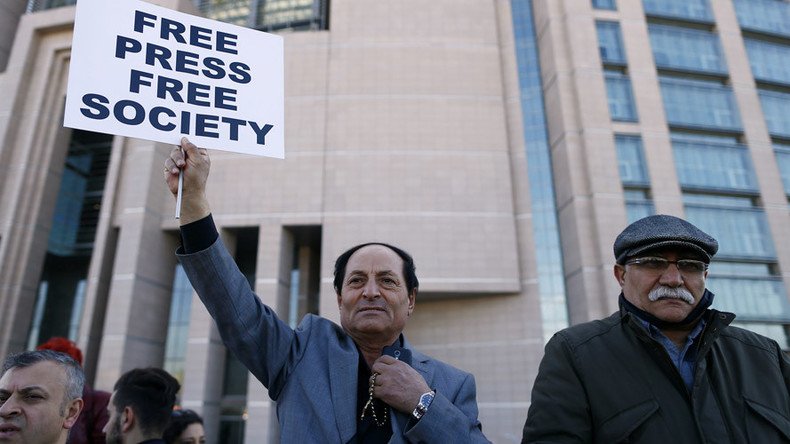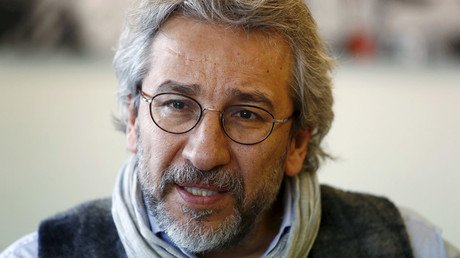Four Turkish academics are to face trial in Istanbul after having been charged with spreading “terrorist propaganda.” Their alleged crime was to denounce the renewed conflict with Turkey’s Kurds. Protesters are already gathering outside the court in Istanbul.
The four academics Esra Mungan Gursoy, Meral Camci, Kivanc Ersoy and Muzaffer Kaya were part of a group of more than 1,000 scholars who signed a declaration in January that was critical of the Turkish government’s military intervention into the predominantly Kurdish southeast of the country.
The Turkish President Recep Tayyip Erdogan did not take kindly to the signing of the petition and opened legal proceedings against some of those who signed the document.
A 2 1/2-year ceasefire between the PKK and Ankara was shattered in July. Kurdish militants are fighting for the right to self-determination and greater autonomy for Kurds – demands that Ankara rejects.
Since July, almost 400 soldiers and police and several thousand militants have been killed in the conflict which has largely take part in the southeast of Turkey, according to government figures. Opposition parties say between 500 and 1,000 civilians have also been killed in the fighting.
Meanwhile in a separate courtroom, the trial against two Cumhuriyet journalists who are charged with spying and aiding a terrorist organization is continuing.
Can Dundar, editor-in-chief of the Cumhuriyet newspaper, and Ankara bureau chief Erdem Gul are facing life in prison after they published information that alleged the Turkish government was complicit in ferrying arms shipments into Syria.
Hundreds of protesters have gathered outside the court in Turkey’s largest city to protest the two trials, which demonstrators see as an erosion of free speech in the country, which is being carried out by the Turkish government.
Turkish authorities have recently taken a number of steps aimed at suppressing freedom of the press, from taking over Turkey’s biggest newspaper, Zaman, to banning Russia’s Sputnik news agency.
“In short, journalism is in a coma in Turkey. Erdogan’s administration doesn’t seem to tolerate any criticism at all. It is impossible to do real journalism in Turkey right now,” Dr. Y. Alp Aslandogan, a Board Member of the Gulen Institute, told RT.
“Any journalist, [if] they criticize Erdogan, risks being imprisoned and legally harassed. Zaman daily was the largest circulating newspaper in Turkey and it is now assigned to a government trustee. It was essentially a politically motivated government takeover. The next day a paper which was critical of Erdogan became Erdogan’s mouthpiece," he added.
Ankara has also been heavily criticized by the European Parliament for its record on human rights and media freedoms.
"(Lawmakers) urge Turkey to act against intimidation of journalists in all its forms, condemn its violent and illegal take-over of several newspapers ... and highlight its serious backsliding on freedom of speech," the parliament said, as cited by Reuters.


